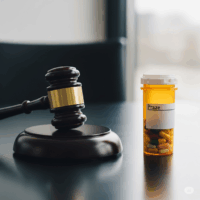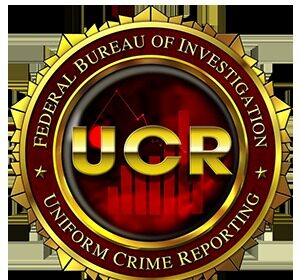Fake online pharmacies are websites that claim to sell prescription and over-the-counter (OTC) medications, but they are not licensed or regulated by any government or healthcare organization.
The internet has revolutionized the way we access information and services, including the purchase of medications. However, this convenience has also opened the door to a growing number of fake online pharmacies, posing a significant threat to public health. In 2024, it is crucial for consumers to be vigilant and take steps to identify and avoid these fraudulent websites.
The Risks of Fake Online Pharmacies
Counterfeit drugs can contain harmful ingredients, such as toxic substances or inactive ingredients. They may also be contaminated with bacteria or viruses. In some cases, counterfeit drugs may be completely ineffective. This can lead to serious health problems, including:
- Adverse drug reactions: These can range from mild side effects to life-threatening reactions.
- Overdose: Counterfeit drugs may contain higher or lower doses of the active ingredient than the label indicates. This can lead to accidental overdoses, which can be fatal.
- Ineffectiveness: Counterfeit drugs may not be effective in treating the condition they are intended to treat. This can lead to prolonged illness and worsening of the condition.
Other Risks:
1. Receiving counterfeit or expired medications: Fake online pharmacies often sell counterfeit or expired medications, which can be ineffective or even dangerous. Counterfeit medications may contain inactive ingredients or incorrect dosages, which can lead to adverse reactions or even death. Expired medications may no longer be effective or may even contain harmful contaminants.
2. Privacy and financial risks: Fake online pharmacies may steal your personal information, such as your name, address, and credit card number. This information can be used to commit identity theft or other financial crimes.
3. Legal and regulatory risks: Purchasing prescription medications from a fake online pharmacy is illegal in many jurisdictions. You could face fines or even jail time if you are caught. Additionally, counterfeit medications are often manufactured in unregulated facilities, which can pose a health hazard.
4. Delays or errors in medication delivery: Fake online pharmacies may take longer to deliver your medications than legitimate pharmacies. They may also make errors in your order, which could lead to you receiving the wrong medication or no medication at all.
5. Lack of oversight and regulation: Fake online pharmacies are often not regulated by the same authorities as legitimate pharmacies. This means that they are not subject to the same quality control standards, which makes it more likely that you will receive counterfeit or expired medications.
Recognizing the Red Flags
Fake online pharmacies often employ deceptive tactics to lure unsuspecting customers. Here are some key red flags to be aware of:
1. Unrealistic prices: Legitimate pharmacies typically adhere to established pricing guidelines. If you encounter prices that are significantly lower than those offered by reputable pharmacies, be cautious.
2. Lack of authorization: Legitimate pharmacies are required to display authorization from regulatory bodies such as the Food and Drug Administration (FDA) or the National Association of Boards of Pharmacy (NABP). If you cannot find such authorization, proceed with caution.
3. Unprofessional appearance: Fake websites often have poor design, grammatical errors, and outdated information. This can indicate a lack of legitimacy.
4. Unsolicited emails or ads: Legitimate pharmacies rarely initiate contact with potential customers through unsolicited emails or ads. If you receive such communications, be wary of the potential scam.
5. Lack of a physical address: Legitimate pharmacies typically have physical locations. Verify the address and contact information through independent sources.
6. Overly enthusiastic testimonials: Fake websites may feature testimonials that are overly enthusiastic or seem too good to be true. Be skeptical of these claims.
7. Difficulty contacting the pharmacy: Legitimate pharmacies should be easy to reach by phone or email. If you have difficulty contacting the pharmacy, it may be a sign that something is amiss.
8. Requests for unnecessary personal information: Legitimate pharmacies should only request the information that is necessary to process your prescription. If you are asked for excessive personal information, it may be a sign that the website is not legitimate.
9. Shipping from other countries: Legitimate pharmacies in the United States should not ship from other countries. If a pharmacy is shipping from a foreign country, be wary of the potential for counterfeit or expired medications.
10. Lack of seals of approval: Reputable pharmacies display seals of approval from trusted organizations such as PharmacyChecker.com Verification Program. If you do not see any seals of approval, it may be a sign that the pharmacy is not legitimate.
Protecting Yourself from Harm
To safeguard your health and avoid falling victim to fake online pharmacies, follow these preventive measures:
- Only purchase medications from licensed pharmacies: Check the website’s authorization from the FDA or NABP.
- Verify the pharmacy’s physical address: Legitimate pharmacies typically have physical locations. Verify the address and contact information through independent sources.
- Look for seals of approval: Reputable pharmacies display seals of approval from trusted organizations such as the PharmacyChecker.com Verification Program.
- Do not provide personal or financial information: Legitimate pharmacies should not require excessive personal or financial information.
- Read reviews and testimonials: Check for customer reviews and testimonials to gauge the pharmacy’s legitimacy.
Addressing the Growing Challenge
The proliferation of fake online pharmacies demands a multi-pronged approach to address this challenge:
- Government regulation: Governments should strengthen regulations and enforcement mechanisms to crack down on fraudulent websites.
- Consumer education: Public awareness campaigns can educate consumers about the dangers of fake online pharmacies and provide guidance on identifying legitimate sources.
- Technical solutions: Technology companies can develop tools and algorithms to detect and flag suspicious websites.
- Collaboration between stakeholders: Collaboration between governments, law enforcement agencies, industry organizations, and healthcare professionals is essential to combat this pervasive issue.
Conclusion
In today’s digital landscape, accessing medications online has become increasingly common. However, the rise of fake online pharmacies poses a significant threat to public health. By being vigilant, following precautionary measures, and supporting efforts to address this issue, we can protect ourselves from these fraudulent websites and ensure access to safe and effective medications.
















